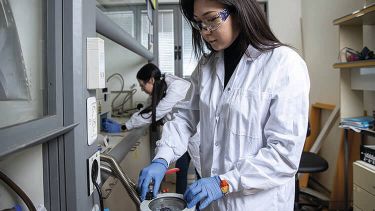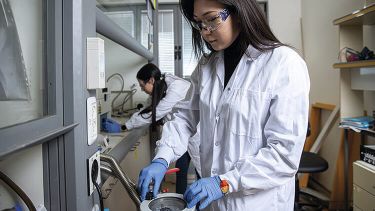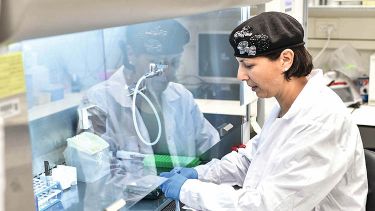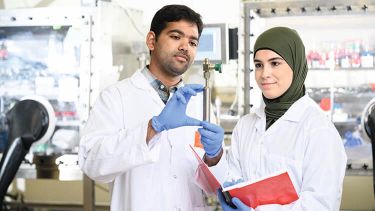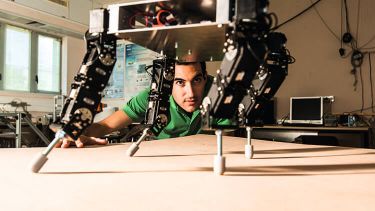
Marine exploration and Holocaust education are just two areas in which the University of Haifa is using advanced technology to delve deeper than ever before
We’ve gazed at men walking on the moon, ogled rockets breaking away from the atmosphere and explored almost every patch of solid earth. But when it comes to our oceans — environments of extreme pressures, thick darkness and little oxygen — we remain mystified as to what lurks beneath the surface. According to the National Oceanic and Atmospheric Administration, 80 percent of the sea bottom is still unmapped; to put that in perspective, NASA has mapped almost 99 percent of Mars. The seabed — with its lakes, hot springs and canyons — is the next frontier.
Modern technological developments are allowing experts to begin probing the deep, and the Leon H Charney School of Marine Sciences (CSMS) is contributing with projects in its Hatter Department of Marine Technologies. These include developments of next-generation unmanned submarines to detect military threats; cutting-edge submersible technologies for marine research and conservation; and underwater navigation systems. According to CSMS director Prof Ilana Berman-Frank,
“Deep-sea research presents many of the same challenges as space exploration — and in some ways it can be even more demanding.”
One of the projects the university is leading the way in is ThreatDetect, which uses a system of acoustic sensors to classify targets according to the nature of their movement, distinguishing between fish, marine mammals, sea turtles and divers. At the same time, an autonomous submarine scans the area for marine mines. The department also operates a remote underwater vehicle that can descend to a depth of almost 10,000ft and is equipped with cameras, flashlights and mechanical arms that can carry a sample from the seabed. Meanwhile, the Underwater Imaging Laboratory is developing optical systems for underwater photography and automatic object detection.
Beyond the ocean
Back on dry land, other initiatives are making waves at the University of Haifa thanks to a new innovation hub focusing on Holocaust education and commemoration. One of these projects uses augmented reality to tell the story of lost Jewish places in European cities, while another curates the narrative of Jewish children from Holland during the Holocaust using virtual reality. A third project, meanwhile, tells the story of Jewish Dutch children through the medium of sand art.
The Hub is a collaborative space that helps innovators turn their ideas into products by creating networking opportunities, providing professional guidance and building a community of like-minded individuals. So far, seven entrepreneurs from the Netherlands, Israel, Germany, Australia and England have been accepted onto the program.
Dr Yael Granot-Bein, director of the program, says: “The Hub brings creative people together and provides them with a supportive environment. Here, they can work with mentors and professionals who turn their vision into a reality.”
Innovation and entrepreneurship
The University of Haifa is buoyed on by perpetual innovation and enterprise. In 2019, it debuted the Haifa Innovation Labs, or, as students know it, the HIL — a program that nurtures entrepreneurship by combining academics with hands-on experience. Open to all students, it aims to design a better world through courses on topics such as business planning for start-ups; the innovation process for new products; and developing interpersonal skills.
The HIL focuses on social innovation and impact entrepreneurship, combining business with social goals. One of the main projects is the Innovation Nursery — a platform for the development of social-environmental projects, enabling students to gain experience in developing creative solutions. The Innovation Nursery brings together multidisciplinary teams of students to tackle a real-life social or environmental challenge and develop a
proof-of-concept product or service.
The University of Haifa also became the latest Israeli university to open a Venture Capital Fund — the HIL Fund, founded through the Haifa Innovation Labs and operated in cooperation with fresh- fund venture capital. Its aim? Providing students and recent graduates access to early-stage funds for their ideas.

